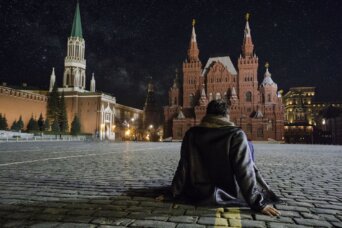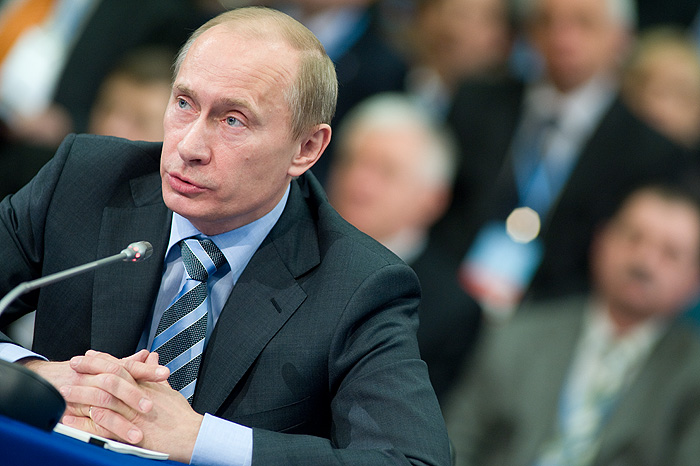- About
- Topics
- Picks
- Audio
- Story
- In-Depth
- Opinion
- News
- Donate
- Signup for our newsletterOur Editors' Best Picks.Send
Read, Debate: Engage.
| topic: | Human Rights |
|---|---|
| located: | Russia |
| editor: | Igor Serebryany |
As the human rights situation in Russia continues to deteriorate, a number of human rights groups, both within the country and internationally, question the appropriateness of Moscow's bid to join the UN Human Rights Council for 2021-2023 period.
Recently, Russia's human rights standing came under fire from twelve local non-government organizations as well as from a Syrian-American group. The Russian activists pointed out that Moscow didn't deserve representation in the 47-nation UN human right's body due to its poor performance in that area. In particular, they mentioned extra-judicial killings in Northern Caucasian regions, discrimination of the LGBT community, dismal conditions in prisons, freedom of meetings suppression, to name a few.
Twelve NGOs submitted a list of questions for the UN HRC which Russian representatives will have to answer when Moscow's bid for membership will be discussed there later this week, a lawyer in the Memorial, one of the NGOs, Tatyana Glushkova, says. "This is natural that the states can be reluctant to highlight some problems or even offer misleading information to represent themselves at their best. This is why the UN HRC accepts the independent reports to verify the official ones."
The chairman of the Free Russia Foundation Vladimir Kara-Murza urged countries not to elect Russia as it would be as shameful for the Council as electing Sudan, Lybia, Saudi Arabia in the previous years.
Russia cannot be allowed to even run for re-election just a few weeks after Putin's opponent Alexei Navalny was poisoned with the Novichok nerve agent, the activist noted. "We have hundreds of political prisoners in Russia today. No free elections, no free mass media. Peaceful protesters are arrested and jailed," he said adding that if Russia is allowed into the HRC, that will be an "Orwellian" solution.
Russia lost its seat in the body in 2016, loosing to another applicant, Croatia, 112 - 114 votes at the General Assembly. Prior to the voting, over 80 HR organisations worldwide opposed Russia's membership stressing that Russia was “unworthy to represent Eastern Europe” in the UN HRC in connection with actions in Syria. Moscow fought back, with its deputy Foreign Ministry Grigory Lukyantsev accusing the Council of "geographical imbalance in the matter of human rights situations" and "attempts to use HRC for including various politically charged issues on the agenda of the UN General Assembly."
The head of the Russian presidential HRC at that time Mikhail Fedotov tried to play down the defeat describing it as "offensive still non-disastrous. [The UN HRC] isn't a World's Soccer Team and it isn't an assembly of the countries which scored the top results in human rights," he insisted. Moscow attempts to re-enter the HRC despite Russia being repeatedly slamming it for "becoming a platform for promoting conjunctural interests, settling political scores and defaming countries."
Russia announced its intention to make another bid for membership in the UN HRC in February 2019. "We are indeed going to file such an application. At present we are not an HRC member but we continue actively to work within this body by promoting our initiatives," the country's permanent representative at the UN office in Geneva, Gennady Gatilov, said.
In its 2020 report, the Human Rights Watch stressed that Russian authorities responded to rising civic activism with bans, repressive laws, and showcasing prosecutions. The authorities introduced new restrictions to speech, adopted a law that allows isolating the Russian segment of the internet, employed an overwhelming show of force, detentions, and rushed criminal prosecutions against opponents.
Image by Felipe Cardoso

